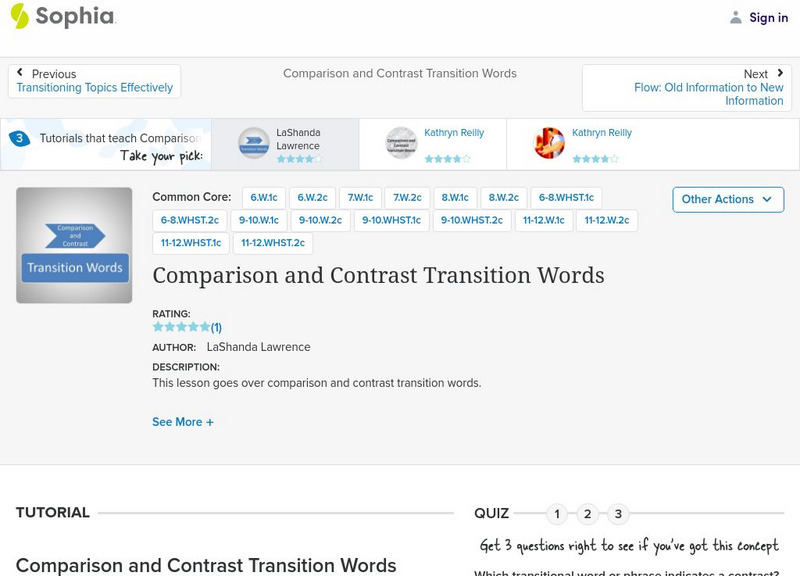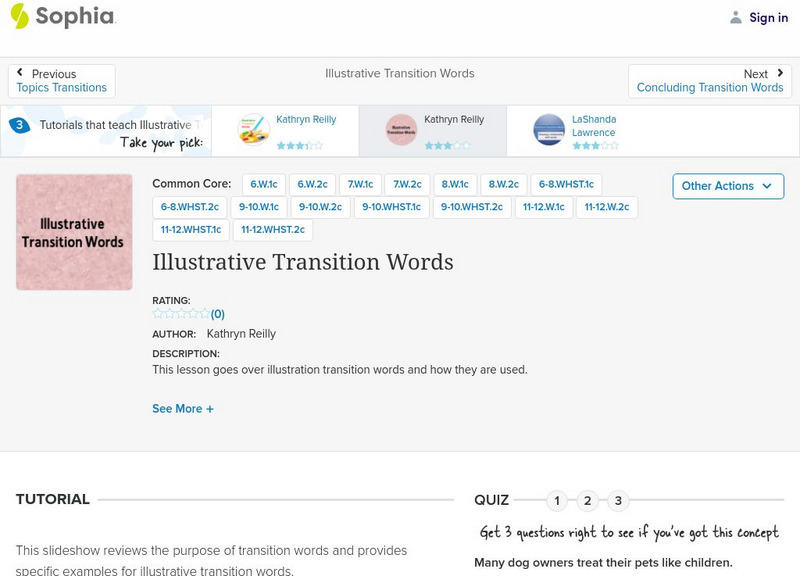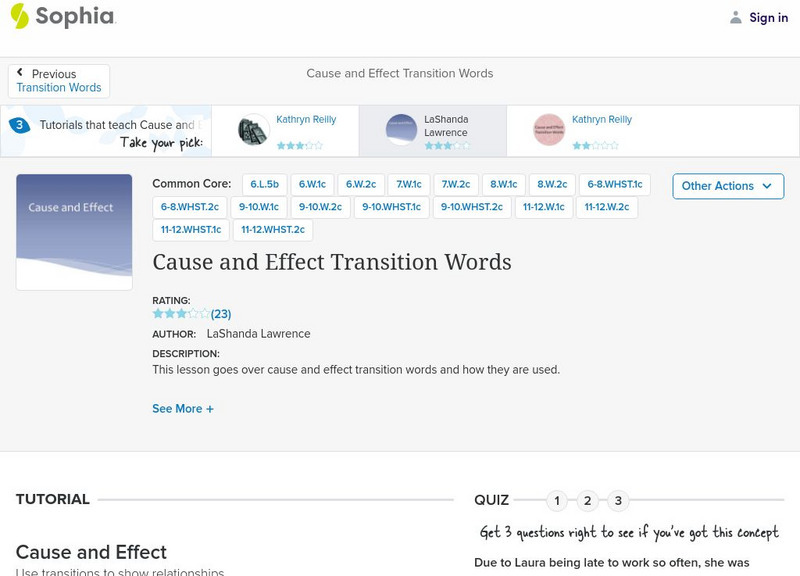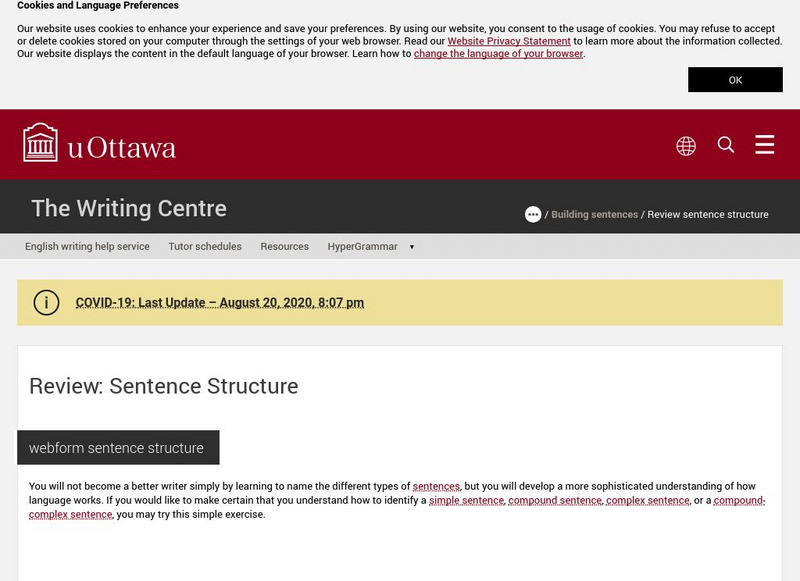Sophia Learning
Sophia: Dangling Modifiers: Lesson 1
This lesson introduces dangling modifiers and explains how to identify them in context. It is 1 of 5 in the series titled "Dangling Modifiers."
Sophia Learning
Sophia: Dangling Modifiers: Lesson 5
This lesson introduces dangling modifiers and explains how to identify them in context. It is 5 of 5 in the series titled "Dangling Modifiers."
Sophia Learning
Sophia: Sentence Variety: Lesson 1
This slideshow lesson focuses on using sentence variety in composition to improve clarity and overall readability. It is 1 of 2 in the series titled "Sentence Variety."
TES Global
Blendspace: Sentence Structure Is Important
A thirteen-part learning module with links to videos, texts, websites, and slideshows about sentence structure and avoiding sentence errors.
English Club
English Club: Learn English: Grammar: What Is a Sentence?
An explanation of a sentence and its parts.
ClassFlow
Class Flow: Parts of a Sentence
[Free Registration/Login Required] This flipchart helps with the naming part and telling part of sentences. Pull the dragon and magnifying glass over areas to reveal answers.
ClassFlow
Class Flow: Sentence Conventions
[Free Registration/Login Required] The student will expand or reduces sentences (e.g., adding or deleting modifiers, combining or revising sentences).
ClassFlow
Class Flow: Sentence Intro
[Free Registration/Login Required] Students will be able to distinguish between sentences and fragments. They will also be looking at subjects and predicates.
ClassFlow
Class Flow: Subject Verb Identification
[Free Registration/Login Required] In this lesson students will identify subject and verb in various sentences and label the sentence correctly.
ClassFlow
Class Flow: Types of Sentences
[Free Registration/Login Required] In this flipchart the students will identify the difference between a sentence and a fragment. The students will be able to identify the four types of sentences and their correct punctuation.
ClassFlow
Class Flow: Verb Agreement
[Free Registration/Login Required] Students will learn to re-read own writing to check for grammatical sense (coherence) and accuracy (agreement); to identify errors and to suggest alternative constructions.
ClassFlow
Class Flow: Words Unit
[Free Registration/Login Required] This flipchart makes students put together a string of words to make sentences.
ClassFlow
Class Flow: Adding Sparks to Sentence Beginnings
[Free Registration/Login Required] This flipchart reviews several ways to begin a sentence and provides examples, review, and an assessment.
ClassFlow
Class Flow: A Twisted Christmas Story
[Free Registration/Login Required] This Twisted Christmas Story has sentences with the words in the wrong place. Rearrange the words and then rearrange the sentences to create a logical story.
Sophia Learning
Sophia: Cause and Effect Transition Words
This lesson goes over cause and effect transition words and how they are used.
Sophia Learning
Sophia: Choppy Sentences
This lesson discusses how to recognize and correct sentences that are choppy.
Sophia Learning
Sophia: Comparison and Contrast Transition Words
This lesson goes over comparison and contrast transition words.
Sophia Learning
Sophia: Comparison and Contrast Transition Words
This lesson goes over comparison and contrast transition words.
Sophia Learning
Sophia: Illustrative Transition Words
This lesson goes over illustration transition words and how they are used.
Sophia Learning
Sophia: Sentence Variety: Length
This lesson goes discusses variation in sentence length.
Sophia Learning
Sophia: Sequencing Transition Words
This lesson goes over sequence transition words and how they are used.
Sophia Learning
Sophia: Cause and Effect Transition Words: Lesson 3
This lesson goes over cause and effect transition words and how they are used. It is 3 of 3 in the series titled "Cause and Effect Transition Words." W.9-10.2c cohesion/clarity/trans, W.11-12.2c Transition/Cohesion
University of Ottawa (Canada)
University of Ottawa: Sentence Structure Review
A good site that gives a list of sentences with explanations. Students must choose whether each sentence is simple, compound, complex, or compound-complex.

























